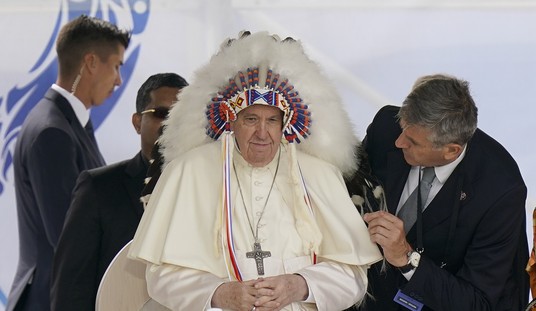On the campaign trail, Barack Obama rarely missed an opportunity to demonize lobbyists and promise to change the culture of Washington. In fact, Obama built his entire rationale for the office on the notion that only an outsider with little experience in national politics could ever hope to change the influence peddling and backroom dealings he blamed on lobbyists. Obama’s election should have portended a recession in the lobbying industry inside the Beltway. Instead, in the middle of the deepest recession in post-war history, K Street transformed into Boomtown USA:
K Street’s top 25 firms cashed in on the aggressive legislative agenda unleashed by the new president and bigger Democratic majorities in Congress in 2009 to post double-digit growth of about 10 percent over the previous year.
Despite economic uncertainty and the promise by the Obama administration to clamp down on the influence industry, the majority of top lobbying firms posted higher numbers in 2009, with 11 firms showing dramatic growth. …
While most old-line firms posted limited to flat growth, several midsized lobby shops, as well as a handful of relatively younger lobby shops, posted dramatic increases in revenue.
The Podesta Group, Brownstein Hyatt Farber Schreck, Holland & Knight and Alston & Bird all reported more than 40 percent increases in billings. K&L Gates, Mehlman Vogel Castagnetti and McBee Strategic Consulting posted gains of more than 20 percent in 2009.
With several big-ticket legislative items moving through Congress, in particular financial services regulatory reform, lobbyists said they expect more of the same this year.
In case Podesta Group sounds familiar, it is the jointly founded firm of John and Tony Podesta. John Podesta was Bill Clinton’s last chief of staff, and he also ran the Obama transition team after the election. Obama wanted to eliminate lobbying so badly that he put one of K Street’s top lobbying firm in charge of setting up his White House team — and John’s group prospered handsomely from it, apparently.
The demonization of lobbying is drizzly effluvium in any case. Lobbyists exist to ensure that people can organize effectively to petition Congress, a right explicitly guaranteed by the First Amendment. Their practical raison d’être is to get shares of the spoils generated by the federal government — to win contracts and grants that benefit their clients and generate big fees for the lobbyists. Even if one is inclined to see lobbyists as evidence of evil in government, they’re nothing more than a symptom, not the disease itself.
What’s the disease? Massive federal government and power. If we really want to limit the reach of lobbyists, we need to limit government and curtail its spending. That’s why the Obama administration isn’t the scourge of the lobbying industry — Obama and Democratic control of Congress is practically its biggest wet dream ever. In a bad economy, its industry grew at roughly half of the rate of the increase in federal spending, and that’s neither coincidence nor an accident.








Join the conversation as a VIP Member